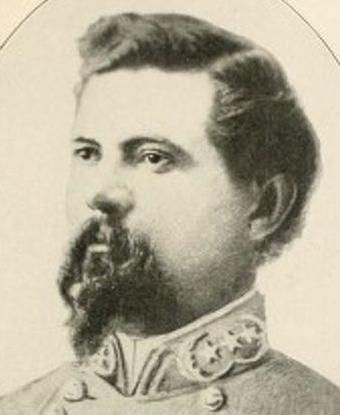Last updated: June 17, 2015
Person
Thomas Rosser

Unknown
Thomas Lafayette Rosser was a West Point student who resigned from the academy two weeks before graduation when his adopted state of Texas seceded from the Union. He began the war as an instructor for New Orleans' Washington Artillery and commanded its Second Battery in the First Battle of Manassas. He was promoted to captain as a reward for shooting down a Union observation balloon.
He was severely wounded at the Battle of Mechanicsville on June 26, 1862 but recovered and was promoted to colonel of the 5th Virginia Cavalry. He then commanded the advance of Jeb Stuart's expedition to Catlett's Station in August 1862 and participated in the Second Battle of Bull Run, where he captured Union commander John Pope's orderly and horses.
He fought at Crampton's Gap at the Battle of South Mountain where, with help from John Pelham's artillery, his cavalry delayed the advance of William B. Franklin's VI Corps. At Antietam, his men screened Robert E. Lee's left flank. He temporarily assumed command of Fitzhugh Lee's brigade during the subsequent fighting against Alfred Pleasonton and was wounded again at the Battle of Kelly's Ford in March 1863.
After Gettysburg, Rosser was promoted to brigadier general of the "Laurel Brigade," and during the Battle of the Wilderness, promoted to brigadier general. He was again wounded at Trevilian Station, the bloodiest and largest all-cavalry battle of the war. For distinguished service in the Shenandoah Valley, he was promoted to major general in November 1864. In January 1865, he conducted a successful raid on New Creek, West Virginia where he seized hundreds of prisoners and tons of supplies. He commanded a cavalry division during the Siege of Petersburg and took part in the Appomattox Campaign. His commanded escaped encirclement at Appomattox but was finally captured on May 4, 1865 near Staunton, Virginia.
After the war, Rosser became superintendent of the National Express Company and later chief engineer of the Northern Pacific and Canadian Pacific Railroads. In 1886, he bought a plantation near Charlottesville, Virginia and became a gentleman farmer. Rosser returned to the military briefly in 1898 when he was appointed a brigadier general of the volunteers during the Spanish-American War.
